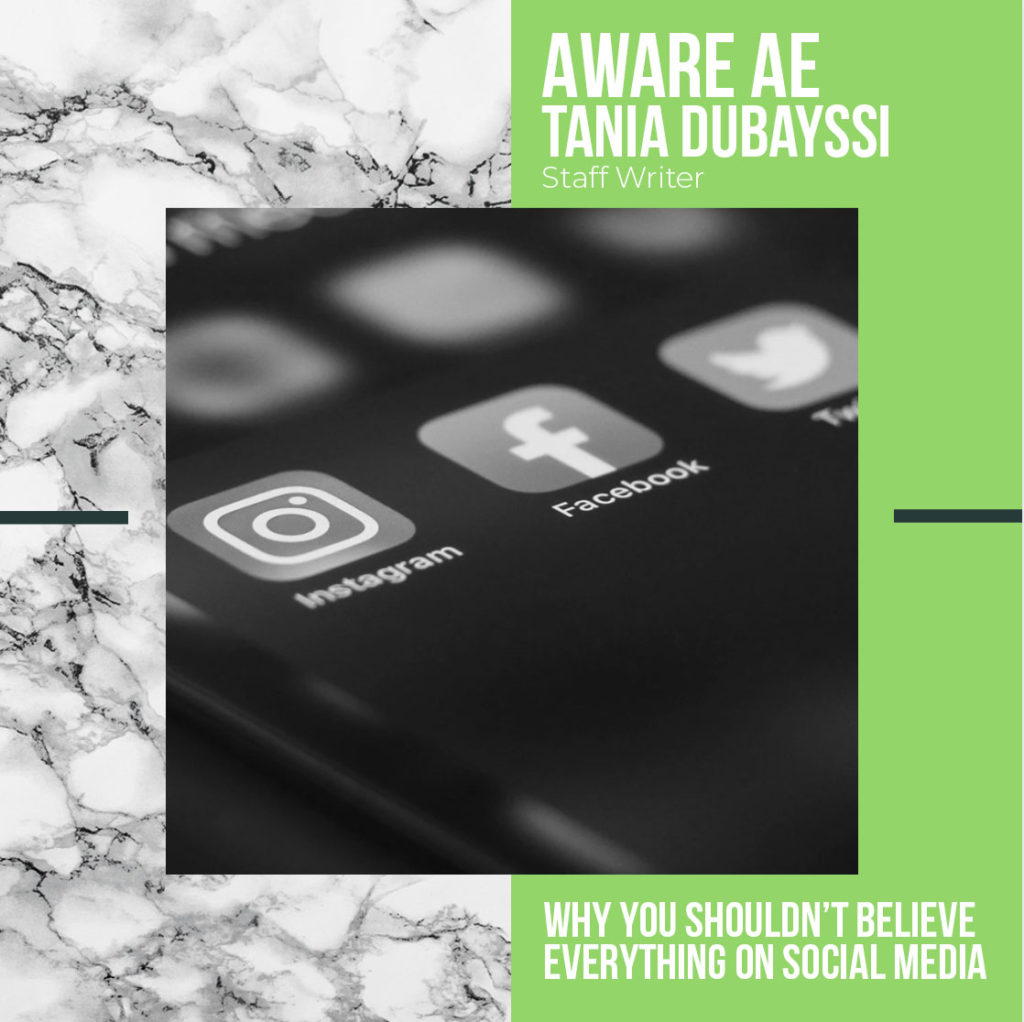Almost half the things you see on social media are an untrue perception of someone’s life. It is important to keep in mind that not every moment is posted online. Some people might tend to only post about their temporary, perfect moments. Behind every social media account, there is a real person living and going through life. Even if they are constantly force-feeding their lives into your social media feeds, these could be just minutes of “perfect” moments.
“Picture Perfect”
No one’s life is picture perfect. Everybody goes through the ups and downs of life. Some may share just the positives, and some may share the negatives, too. Real life is imperfect and often complicated. Do not let anyone’s posts make you feel as though you are inferior or that someone else is living a better life than you. People on social media take the saying “fake it till you make it” a bit too seriously.
Socializing is a natural human instinct. We tend to need the companionship of others to feel at peace with our surroundings and to be able to thrive. Being socially connected to others, your friends, family, or even influencers online can ease anxiety, depression, and prevent loneliness. This is because we feel as though we are part of their lives, even when we do not see those people every day – you feel close and connected to them. However, being too socially active and involved could take a toll on your mental well-being.
Despite knowing that almost half of what you see on Instagram is manipulated into making people’s lives look ten times better, it can still make you feel insecure, questioning why you do not have a big house, many friends, or even the latest trendy clothes. This sense of insecurity comes from a dark place of lacking self-love and appreciation to what you may already have around you.
Although people may make it seem like their lives are a constant ray of sunshine and rainbows, it may not be like that at all – editing applications are taking over and fake “social” friend groups exist. It becomes a sad reality to those who contribute to making their lives seem much more exciting than it actually is. Do not believe everything you see. Someone could post a picture that may look really natural and positive, but you do not know the story behind it. You do not know how that person is feeling on the inside.
Do not be fooled. A “happy” selfie may be taken during their saddest days. Do not base your happiness off of what you see online. Do not allow yourself to compare yourself to others. Maybe someone feels the same about your life. You never know what goes on behind closed doors – life is different for everyone. Although social media platforms such as TikTok make everyone’s lives look the same and almost at the same level, that is not true. No one has the same life. Nobody feels the same way. The happiest looking person could perhaps be the most depressed on the inside. Nevertheless, do not allow yourself to feel less than what you are worth. Your life can change at any given moment. Life is so uncertain. The only issue is that we do not get to see the darker sides of other people’s lives on social media platforms, which makes it less relatable to those who are facing these struggles.
Do you feel like you are constantly missing out on fun you see on social media? While the phenomenon “FOMO” has been around more long ago than social media was created, there is a vast majority of individuals who fear that they are missing out on fun or opportunities that others are showing off and posting. This triggers anxiety and feeling as though you are not good enough to be part of such activities. Your self-esteem gets affected. While others are enjoying, you are sitting there dwelling on the thoughts of “why did I not go?”, “I should have gone”, or even “I wish I had friends or more friends”. This creates boundaries between yourself. You would be depended on living through other people’s lives and checking your social accounts every minute or so.
Take a Break
Take a break from social media. Get away and release the toxicity that you have been gaining. Go on a social media cleanse for a few days. Begin looking around and participating in activities happening in your circle. Go out with your friends. Enjoy every moment like it is your last. Your life outside your social media accounts could be the life someone is craving to have. Appreciate your surroundings.
Stay away from influencers who brainwash you into believing that you need to do and go to all the places they go to. Begin with understanding who is posting “fake” positivity and who is genuine. Fake positivity has impacted social media and made teens and some adults believe that you should be happy all the time, posting it for everyone to see. You do not need to post your happy moments. If you wish to do so, make sure that you are feeling content with yourself and that you are not posting just to show others that your life is good as well. Do not compare yourself to those who seek constant validation from others. Compare yourself in ways that you can improve. Ask yourself this, “how can I improve myself and my life?”, “do I really need to post this moment?”, etc.
Go on an unfollowing spree. Unfollow those who do not serve you any valuable purpose in your life. Those who are constantly posting their goods to show off have got to go. Follow and look up to people who genuinely matter in your life. This helps avoiding comparing yourself to those who live an unrealistic life.
